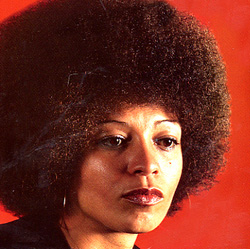 |
||||
|
Black FeminismThe Journey of Black Feminism: Redefining Intersectional Activism Black feminism, also known as womanism, is a powerful movement that emerged in response to the unique experiences of Black women within the feminist and civil rights movements. This article delves into the rich history of Black feminism, tracing its roots, key figures, and its ongoing contributions to intersectional activism. The Emergence of Black Feminism: Black feminism finds its roots in the early struggles for racial and gender equality. During the abolitionist and suffrage movements of the 19th century, Black women faced double discrimination based on their race and gender. Figures such as Sojourner Truth and Ida B. Wells-Barnett paved the way by highlighting the intersectionality of oppressions faced by Black women and advocating for their rights. The Combahee River Collective: In the 1970s, the Combahee River Collective, a group of Black feminists, played a pivotal role in shaping the ideology of Black feminism. Their statement, "A Black Feminist Statement," emphasized the intersectionality of race, gender, and class, while highlighting the unique experiences and challenges faced by Black women. Their work laid the foundation for understanding the interconnected nature of oppressions and the need for collective liberation. Intersectionality and Kimberlé Crenshaw: The concept of intersectionality, a key pillar of Black feminism, was coined by legal scholar Kimberlé Crenshaw in the late 1980s. Intersectionality recognizes that individuals experience multiple forms of oppression simultaneously, and these intersecting identities shape their experiences and challenges. Crenshaw's work has been instrumental in highlighting the specific struggles faced by Black women and other marginalized groups. Notable Figures in Black Feminism: a) Audre Lorde: A renowned poet, essayist, and activist, Lorde explored the intersections of race, gender, and sexuality. Her works, such as "Sister Outsider" and "The Master's Tools Will Never Dismantle the Master's House," challenged the limitations of white-dominated feminism and advocated for the inclusion of Black women's experiences. b) Angela Davis: A prominent scholar and activist, Davis addressed the connections between racism, sexism, and capitalism. Her work, including "Women, Race, and Class," emphasized the importance of solidarity among different marginalized groups to dismantle oppressive systems. c) Bell Hooks: A prolific writer and scholar, hooks' work focused on the intersections of race, gender, and capitalism. Her influential books, such as "Ain't I a Woman?" and "Feminism Is for Everybody," explored the experiences of Black women and critiqued the ways in which mainstream feminism often marginalized their voices. Contributions and Impact: Black feminism has made significant contributions to social justice movements globally. Its emphasis on intersectionality has expanded the feminist discourse, highlighting the need to address the unique struggles faced by Black women, Indigenous women, women of color, and other marginalized groups. Black feminists have been instrumental in advocating for reproductive justice, combating violence against women, fighting for economic equality, and challenging systemic racism. Contemporary Relevance: Black feminism remains a vital force in contemporary activism. It continues to influence movements such as Black Lives Matter, reproductive justice advocacy, LGBTQ+ rights, and intersectional feminist organizing. Black feminists are at the forefront of dismantling systems of oppression and promoting inclusive, anti-racist feminism that centers the experiences of marginalized communities. Conclusion: The history of Black feminism is a testament to the resilience and strength of Black women who have fought against intersecting forms of oppression. By challenging the limitations of mainstream feminism and advocating for intersectionality, Black feminism has shaped a more inclusive and equitable movement. It serves as a guiding force in the ongoing struggle for liberation, justice, and equality for all.
Black FeminismCommonly known as Double Jeopardy being both black and a woman exposes a person to racism, sexism and cross-racial sexism. We live now in an era of people like Barack Obama and Hillary Clinton and we are sometimes forced to make decisions not based on race or sex, but on what we actually believe in.
Suggested Readings for Black Feminists
|
|
|||
|
|
||||
|
|
||||
 |
Health Matters - Historical Feminism - International Feminism - Lesbian Feminism - Male Feminism - Modern Feminism - Musical Feminism Philosophy of Feminism - Postfeminism - Pro-Choice Feminism - Quotes by Feminists - Religion and Feminism - Sports and Feminism |
 |
||
